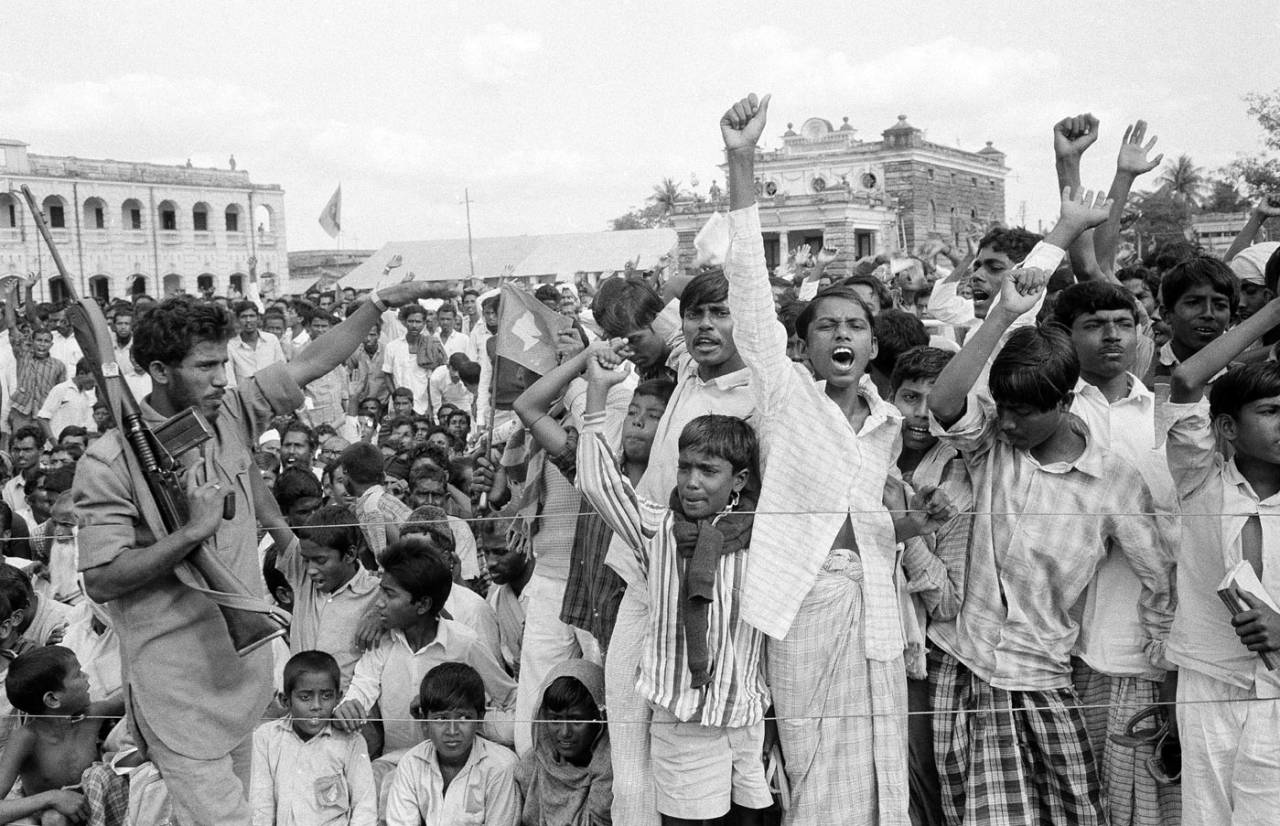In days when the international calendar was far less frenetic than now and major tours, especially to the subcontinent, infrequent, it was common for strong invitational sides to go on tours. This was done to help boost cricket in the host countries, and the highlights were quasi Test matches that were played seriously in front of large crowds.
In early 1971 a Commonwealth side - almost all the players from England - set off for a
short tour of Pakistan where they were scheduled to play three four-day matches. Two years earlier England's three-Test tour had
prematurely ended because of escalating violence. Now, political tensions remained high, and there was high international interest in the region after a cyclone the previous November had killed more than 500,000 in East Pakistan and West Bengal. In December 1970 a fund-raising "Test" between Pakistan and a Rest of the World XI had been played in Lahore.
The Commonwealth XI, led by Micky Stewart, started
in Karachi, where the first "Test" passed off without incident, other than Mushtaq Mohammad's withdrawal from the Pakistan side when the board refused to pay any of the home-based cricketers. As it was, the Pakistan XI won comfortably, and from there both sides headed to what was then called East Pakistan, for the second match,
in Dhaka.
The city was on a knife edge. The previous December, the Awami League, a movement that wanted independence from Pakistan, won an overwhelming victory in the elections, but the result was not recognised by the national government. By the time the cricketers arrived in Dhaka it was clear that political tensions were set to erupt.
For three days a large and enthusiastic crowd watched the match, more than expected because an 18-year-old Bengali,
Raqibul Hasan, a first-year politics student at university in Dhaka, had been selected for the Pakistan side. He failed in both innings - making a single each time - but his presence was what mattered.
The International XI took a commanding first-innings lead, thanks to a big hundred by Roy Virgin, but a century from Azmat Rana did enough to give the Pakistan XI a good chance of drawing the game by lunch on the fourth and final day.
Away from the cricket, Pakistan's president had postponed the inaugural session of the newly elected National Assembly that was to meet in Dhaka two days later, and replaced civil administrators with military ones. As news spread, people flooded the streets of Dhaka. Inside the National Stadium, where many were following the game on radios, the announcement was greeted with anger.
Temporary marquees erected to shelter spectators were set alight and spectators swarmed on to the outfield. Within minutes, aware of widespread trouble across the city, the game was abandoned. By then the majority of the incensed crowd had swarmed out of the smouldering stadium and into the streets to continue their protests.
"The student politicians were livid," Hasan said. "They set fire to the stands, and burned down the marquees as we fled back to our hotel. Right then we knew that was the end of it."
John Murray, the former England wicketkeeper, said one minute all was well and then "the next thing I knew we were in the middle of an army escort screaming down a dark road to the airport, where we caught the last plane out to Lahore".
By that evening the army were firing teargas to break up demonstrations. The following morning they opened fire on thousands of protesters blocking the road to the airport, killing one and seriously injuring seven more. Dhaka itself was paralysed by a general strike and there was widespread looting.
Wisden, in common with media outside the subcontinent, gave the tour scant coverage, simply adding a brief and understated note to the scorecard that "the match was abandoned on the fourth and final day, when the crowd invaded the field".
Though the unrest escalated, the third game took place
in Lahore without incident, even if by then most of the Commonwealth XI were keen to head home.
Hasan was replaced in the Pakistan side by Aftab Gul, whose Test debut two years earlier had owed as much to his cricket abilities as it did to his role as a high-profile student leader, who it was felt could help keep protests to a minimum. Imran Khan, 18, also made his debut for a senior Pakistan side in the drawn game.
Hasan fled to Calcutta, returning to the newly independent Bangladesh to become the first captain of their national side. Six members of his family were killed in the civil war between March and December 1971, as was his opening partner in the East Pakistan side, Haleem Chaudhri.
Martin Williamson is executive editor of ESPNcricinfo and managing editor of ESPN Digital Media in Europe, the Middle East and Africa
